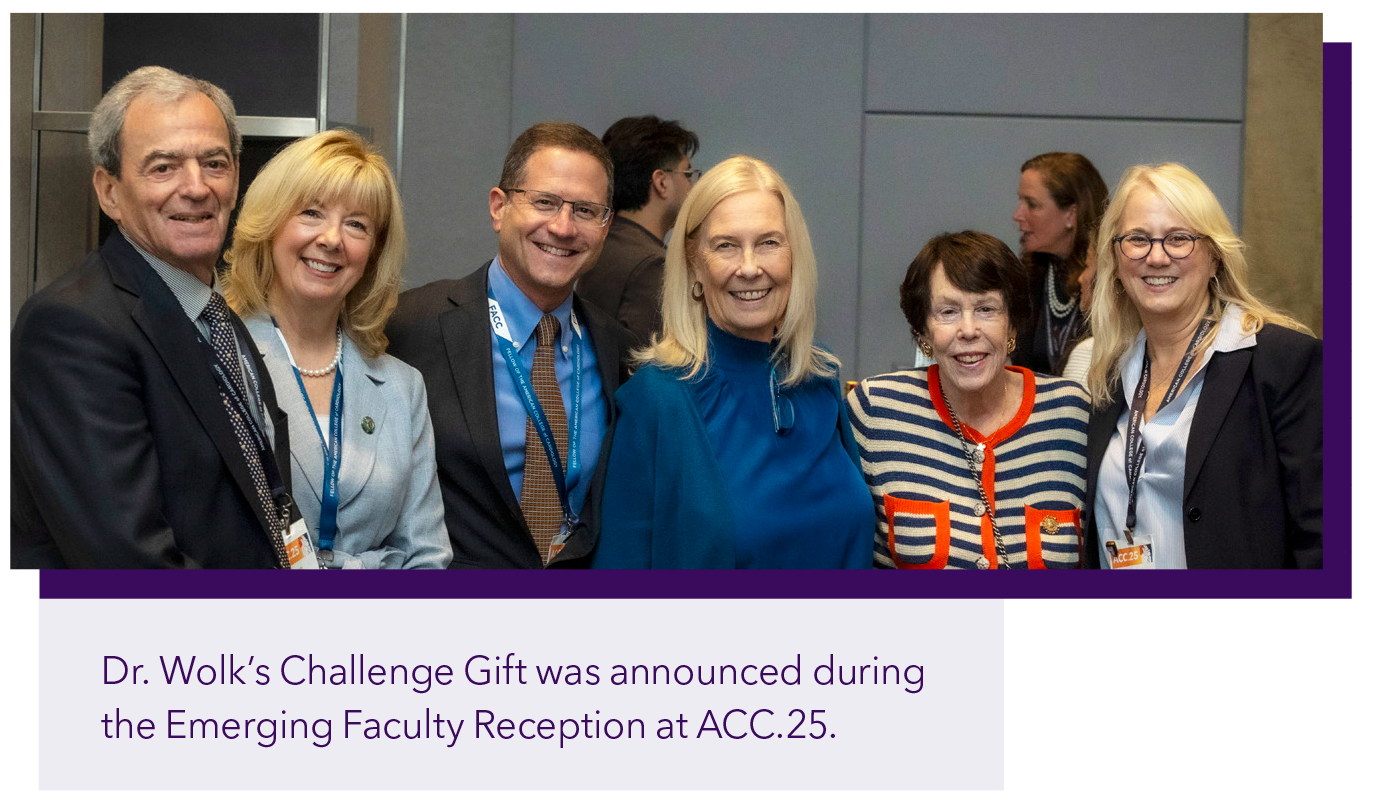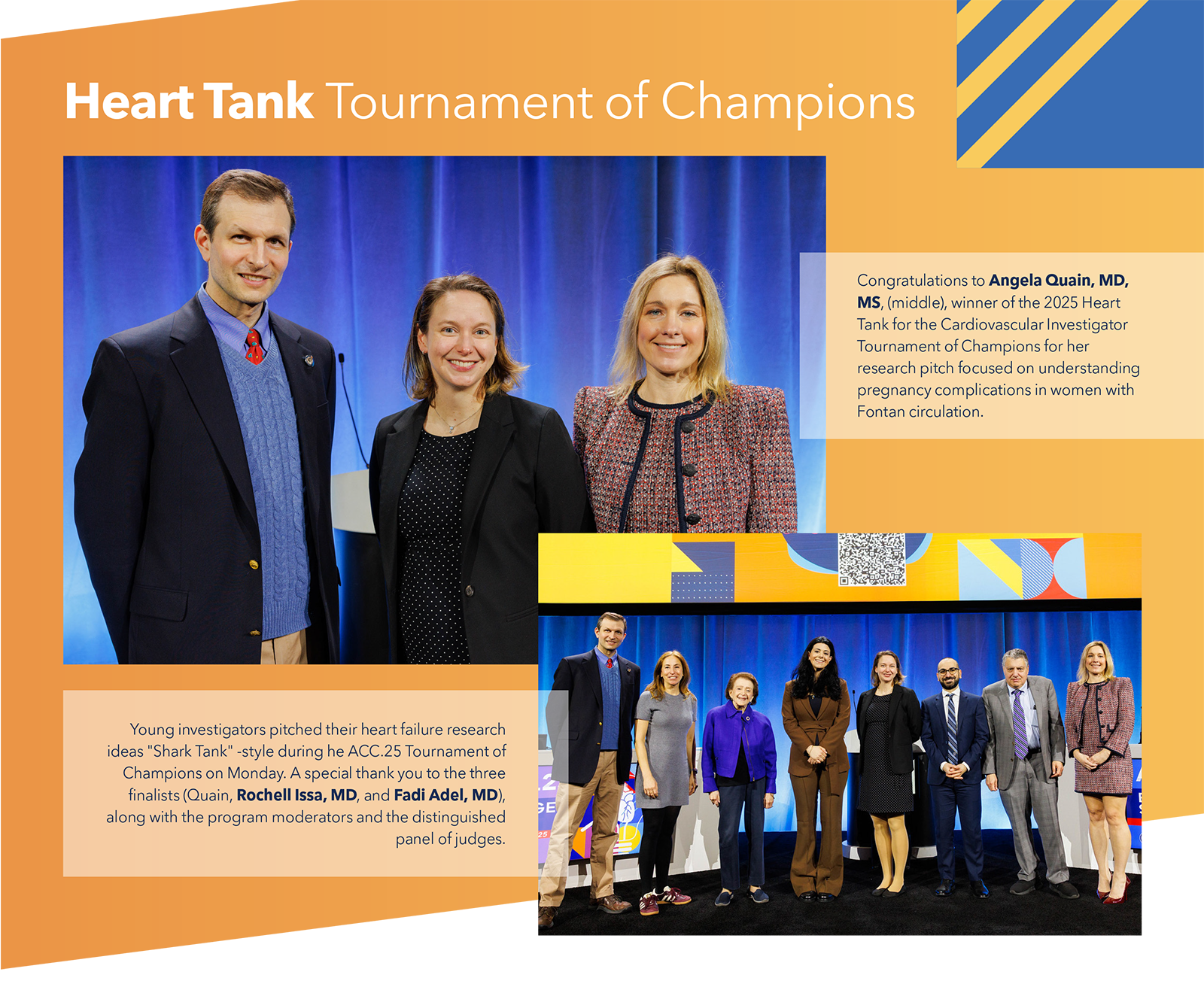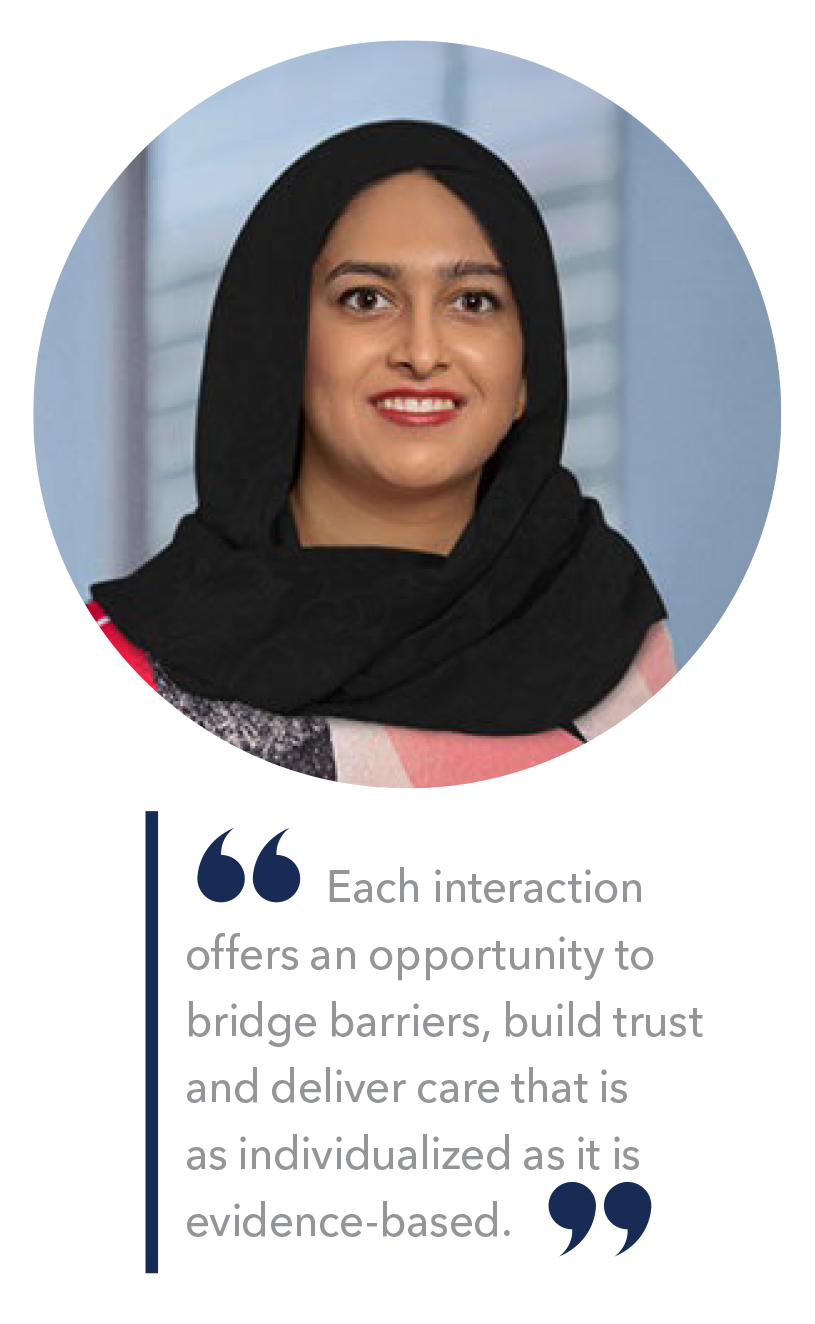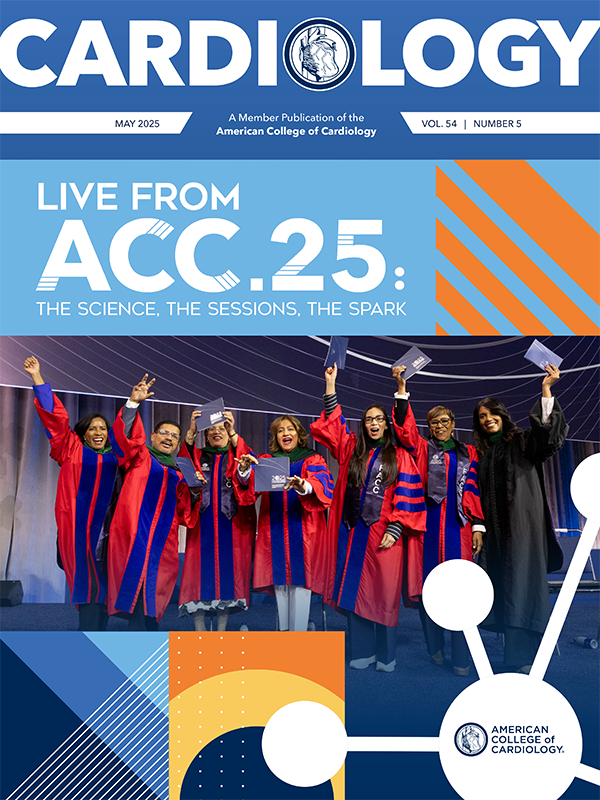The Pulse of ACC | Philanthropic Gifts Boost ACC's Vision For the Future; More
Quick-read articles of particular interest to ACC members.
Philanthropic Gifts Boost ACC's Vision For the Future
In a landmark show of support for cardiovascular education and innovation, the ACC Foundation has received a series of transformative philanthropic commitments to fuel its leadership development, education and global health initiatives.
As ACC's Emerging Faculty Programs celebrate their 20th year of shaping the next generation of cardiovascular leaders, ACC Past President Michael J. Wolk, MD, MACC, and the Michael Wolk Heart Foundation have pledged a $400,000 challenge gift. This commitment includes a 4-to-1 match of donations – $80,000 for every $20,000 raised annually over the next five years.

"Philanthropy truly helps the youngest amongst us succeed to enter careers in medical education, teaching, research and patient care," says Wolk. "I am so pleased that Emerging Faculty alumni have accepted my five-year challenge to kickstart their philanthropic journey. What a return on investment for ACC staff and faculty who have dedicated themselves to this program by pouring their heart and souls into this wonderful effort."
In a separate gift, Chittur A. Sivaram, MD, FACC, has committed $250,000 to establish the annual Chittur A. Sivaram Program Director and Graduate Medical Educators Symposium for 2026 to 2030, ensuring that program directors and graduate medical educators have access to education, resources and a dedicated community united by a shared mission. "As a previous Program Director, I remain passionate about supporting ACC's Program Directors and Graduate Medical Educators Section," says Sivaram. "Developing future leaders is key to improving patient care."
Beyond growing the next generation of cardiovascular educators, a $500,000 gift from Thad Waites, MD, MACC, to create the Thad and Gerry Waites Rural Cardiovascular Health Fellowship will immerse select cardiovascular Fellows in rural and tribal communities and help them gain the skills and experience needed to lead sustainable, community-centered heart-health programs. "I love the concept of paying it forward," says Waites. "Our fellowship will help achieve and sustain good health in rural communities."
ACC's international impact also continues to grow, with two new gifts expanding leadership development and research awards. A $725,000 commitment from Wael Al Mahmeed, MD, FACC, will extend the existing Wael Al Mahmeed Dedication to Young Leaders program, encourage international participation in the Emerging Faculty program, and add two new international research awards. "One of my philanthropic priorities is research and education, for young cardiologists in low- and middle-income countries," says Al Mahmeed. "My wish is that this initiative will encourage more people to invest in this neglected space.
Additionally, a separate gift of $150,000 from Raghib Hussain will create the Jamal S. Rana Cardiometabolic Health Global Research Awards – designed to provide support to researchers working to advance scientific understanding in resource-limited settings. "This initiative will empower the next generation of leaders who will shape the future of global heart health," says Hussain.
Learn more about philanthropic giving at ACC.
New NCD Alliance Report Recommends Strategies to Bolster Global Workforce
Leading up to the fourth High-Level Meeting of the United Nations General Assembly (UNGA) on the Prevention and Control of Noncommunicable Diseases (NCDs) in September, a new report from the NCD Alliance offers an overview of the challenges and opportunities associated with optimizing the global health care workforce to meet global NCD goals.
"Central to ACC's Mission is to help improve heart health for all. The health workforce is essential in supporting that goal, and yet in many places around the world, the number of health care workers is insufficient to meet the needs of the communities they serve," says ACC Past President Athena Poppas, MD, MACC. "This NCD Alliance report highlights ways in which we can better staff, maintain skills, support and finance this essential facet of health systems."
The report, which builds on a previous NCD Alliance report from 2019, provides a structured, interlinking policy framework centered around four key pillars – Staffed, Skilled, Supported and Financed – essential to "accelerating action" and effectively addressing NCD prevention. It also provides specific examples of policies and programs currently in place, such as the NCD Academy, that support each of these areas.
"According to the NCD Alliance report, the most severe workforce shortage appears to be in the countries with the fastest-growing burden of NCDs," says Poppas. "To help address this staffing challenge, NCD Academy offers free, up to date education to better equip all in the primary care community with the skills to handle the growing NCD burden."
The report stresses the importance of building on these implementation examples and urges countries, the World Health Organization and civil society groups and organizations like the ACC to work together to develop global, regional and country-specific strategies to meet the global demand for health care workers delivering NCD care. It also highlights the urgent need for "effective and accessible training and education programs," as well as supporting working environments that can bolster recruitment and retention efforts, improve professional satisfaction and ultimately lead to better patient outcomes. "Consistent and sustainable financing is [also] needed to optimize the heath workforce to address NCDs and achieve global targets," the report states.
"The reasons behind workforce shortages are complex and reflect many demand- and supply-side factors," write the report authors. "Addressing these interconnected issues is essential to ensuring that the health workforce can effectively manage the prevention, diagnosis, and treatment of NCDs and improve patient outcomes."
Visit ACC.org/NCDAcademy for this free online education resource.

Breaking Barriers With Shared Decision-Making

Najah Ali Khan, MD, and her story about using a Spanish version of an ACC CardioSmart decision aid to help build trust and manage the care of a 63-year-old Spanish-speaking woman with progressive dyspnea and fatigue caused by prosthetic valve aortic stenosis, was this year's winner of the CardioSmart Shared Decision-Making Challenge.
Khan, a second-year cardiology fellow at Scripps Prebys Cardiovascular Institute in La Jolla, CA, shared how the CardioSmart decision aid, designed for patients with severe aortic stenosis, helped her explain the risks and benefits of both TAVR and SAVR and helped to transform "an intimidating process into one of clarity and empowerment."
According to Khan, this experience underscored the importance of early integration of family and/or caregivers in shared decision-making discussions and tailoring shared-decision resources with culturally relevant examples or testimonials. "Ms. A.'s journey is a powerful reminder that effective cardiovascular care extends beyond clinical decisions – it's about understanding the person behind the condition," she says. "Each interaction offers an opportunity to bridge barriers, build trust and deliver care that is as individualized as it is evidence-based."
Read more and visit CardioSmart.org to access decision aids, infographics and more on a wide range of cardiovascular topics.
Clinical Topics: Cardiovascular Care Team, Heart Failure and Cardiomyopathies, Valvular Heart Disease
Keywords: Cardiology Magazine, ACC Publications, ACC25, ACC Annual Scientific Session, Global Health, Leadership, Fund Raising, Noncommunicable Diseases, Health Workforce, Workforce, Decision Making, Shared, Aortic Valve Stenosis, Dyspnea

